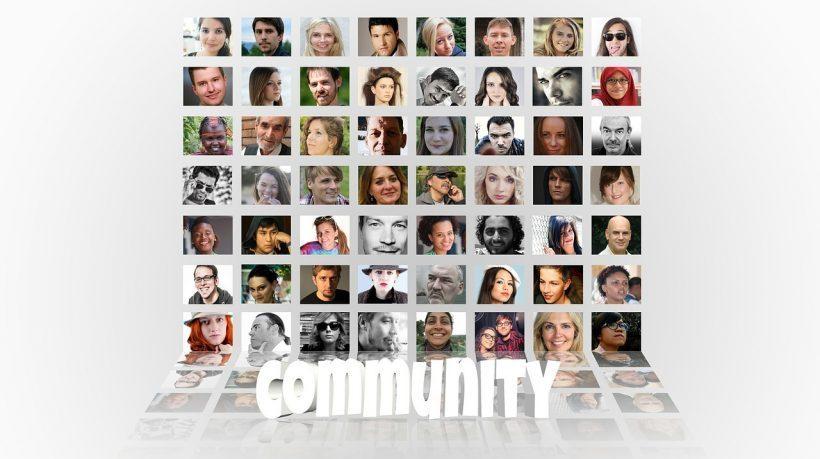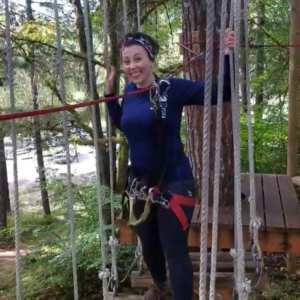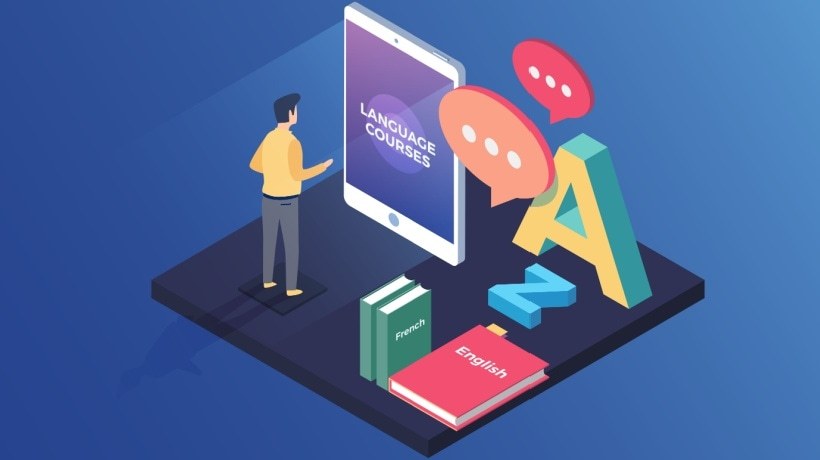Creating A Spanish Language Learning Community In The Virtual Environment
En el primer capítulo de esta aventura aprendiendo con bibliotecarias, platicamos del marco teórico y el diseño básico para la experiencia. Y en el segundo capítulo, comparté como creamos un sentido de comunidad entre miembros.
In the first chapter of this adventure learning with librarians, we talked about the theoretical framework and basic design for the experience. In the second chapter, I shared how we created a sense of language learning community among members.
Órale. Let's get into how this thing looked in action.
Primum Non Nocere (First, Do No Harm)
Like any good Instructional Designer, I needed to assess, albeit informally, how much community members retained.
At one point, I thought of using an “exceeds, meets, approaching, or does not meet expectations” scale, but I threw that out almost instantly. How utterly meaningless for our purposes! This is elective professional development, not a required college course.
In this environment, for this experience, my only expectation was that all language learning community members participate verbally. Which in our safe environment they all did.
Seriously, who is going to "exceed expectations" with 40 minutes of Spanish conversation practice once a week for 8 weeks? It's completely unrealistic. (In another capítulo [chapter], we will see the final self-assessment tool learners completed. Yes, measures, no te preocupes [don't worry]).
Our Virtual Meeting Platform
Zoom: It took a few times for language learning community members to get comfortable using it and to manage firewalls issues.
Delays in sound and occasional interference were less than ideal; we made the best of it. You don't get what you don't pay for.
Patience and persistence got us there in time.
Pick Your Battles
When first learning a language (or re-learning, in the case of intermediate group members) with the goal of communicating on a basic level with Spanish-speaking customers, no learner's brain can tolerate a dump truck of exceptions to language rules.
Excessive correction and virtual red pen covering learners' efforts to leave their comfort zones for something brand new serves zero purpose. Why risk alienating or discouraging learners? Again, Primum Non Nocere (to quote Dr. Thomas Sydenham).
Sí, claro, yes, of course, correct use of vocabulary, verbs, pronouns, and so forth are very important.
But the wrong verb tense (or even using the infinitive form of a verb without conjugating it) will not render us useless to our Spanish-speaking customers.
The point is to just try.
Eyes On The Pronunciation Prize
That said, particularly in the beginner sessions, we did spend time on correct pronunciation. My intention was not to harp but, rather, to support improvement in this area.
Learning or improving pronunciation was a goal for a great many community members in both groups. And proper pronunciation is massively meaningful for confidence and conquering self-consciousness when attempting to communicate in another language.
I used gentle reminders when it mattered, always with a patient smile they could see and hear. Guiding, not chiding.
All Open Book, Todo El Tiempo (All The Time)
Please, por favor, bring any translation resource you like. Por el amor de Dios, we are resourceful library professionals! We don't know everything in the world; we just know where to find it.
As the need arose in virtual conversation, I encouraged language learning community members to take turns looking up a word and then report the translation back to the group.
Use your favorite app, use our Infopeople Survival Spanish for Librarians resources, use Google Translate in another tab, use a Spanish-English dictionary from 20 years ago, lo que sea (whatever). Just get your inquiry-based learning on, amigas.
We Built This Spanish Language Learning Community On Merengue & Cumbia
OK, dancing was not technically part of our curricula, but we absolutely had all the fun library geeks could have learning Spanish.
We made homework fun by spontaneously selecting assignments for the following week based on our conversations. Community members' responses were never anything but positive.
I frequently assigned tareas (homework) to individuals that would:
- Keep them learning outside group.
- Provide an opportunity for them to bring something special to our community.
A few examples:
- Expanding on our problem solving today, create a script that anyone can customize for calling patrons about their holds (these kinds of phone calls typically deliver a message and are not conversational).
- Translate the weirdest reference question you've ever been asked.
- Work up your courage this week to speak Spanish in a Mexican restaurant and share your experience with us.
- Figure out and report back how to say "Indianapolis 500" in Spanish (just for fun).
The Incredible Shrinking Virtual Spanish Language Learning Community
"So it goes," as Indiana's own Kurt Vonnegut wrote.
There was such great enthusiasm and excitement al principio (at first), but librarians are extraordinarily busy people answering all manner of reference questions, visiting schools and daycares, helping patrons figure out their eReaders, telling kids their Minecraft time is up, and getting those books and DVDS in and out the door (Note that none of the above include "shushing" anybody).
Of the 50 initial members of our Spanish language learning community, attendance in the first week was less than half (10 attended beginner group and 12 attended intermediate group).
As the weeks passed, attendance continued to decline to about 20% of the original 50 members. Some we never saw or heard from after they introduced themselves in our Google Group. They continued to receive email notifications and were always welcome to join.
By community members' reports, they never missed because they didn't enjoy or find useful our virtual conversation practice. Scheduling conflicts, demanding workloads, and personal obligations kept them away. Generally, they were excellent in communicating with me in advance that they would be absent.
Own Your Learning
By week 4 (and sometimes sooner), community members' confidence had increased to the point where they volunteered for outside assignments.
Intermediate group members frequently ran the conversation interdependently, bringing up additional topics and questions and initiating problem solving.
A facilitator's dream come true, right?
What We Learned And How It Transformed Us As Professionals And Individuals
En el próximo capítulo (in the next chapter) I can't wait to share with you our outcomes. We have just finished week 6, so their final self-assessments will be a discovery to me too.








